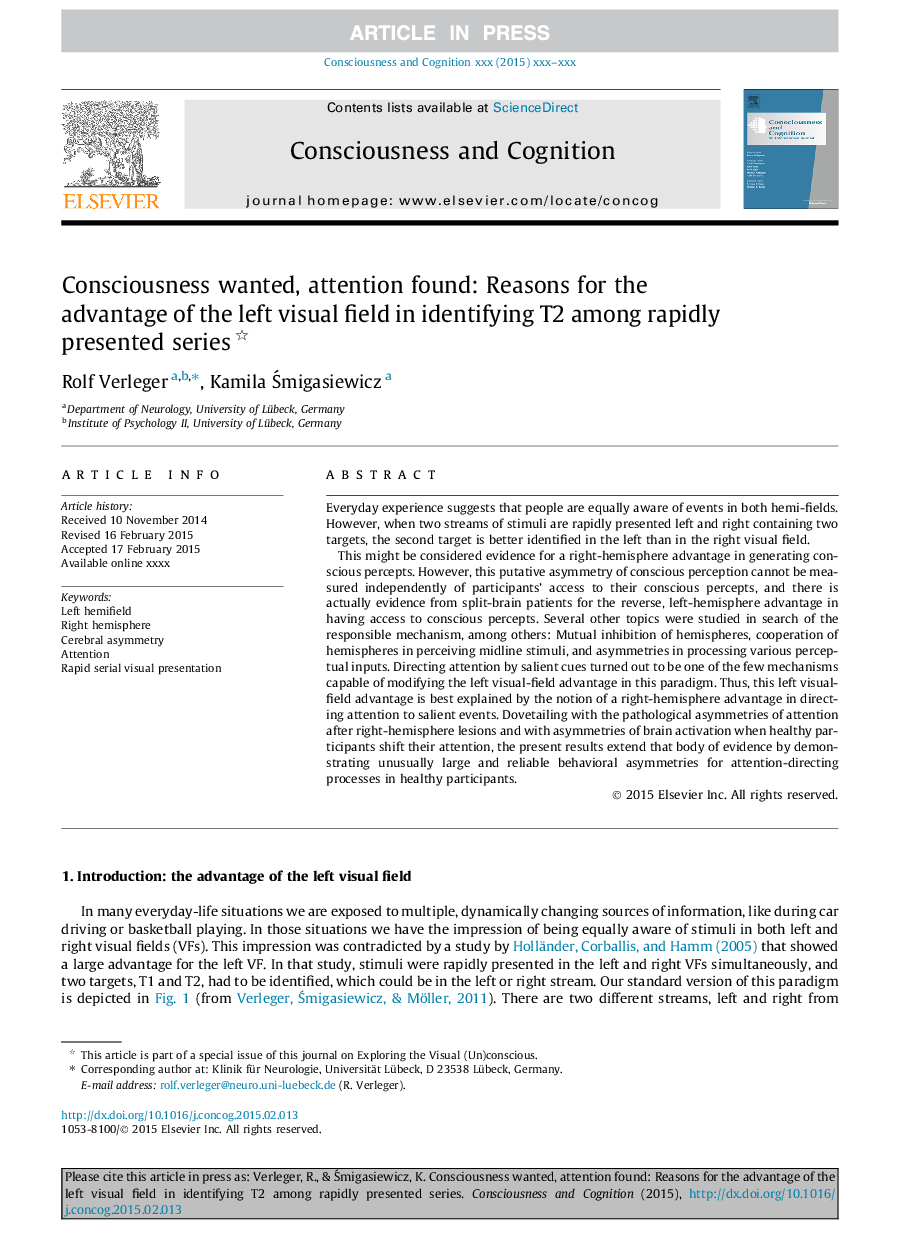| Article ID | Journal | Published Year | Pages | File Type |
|---|---|---|---|---|
| 7289183 | Consciousness and Cognition | 2015 | 14 Pages |
Abstract
This might be considered evidence for a right-hemisphere advantage in generating conscious percepts. However, this putative asymmetry of conscious perception cannot be measured independently of participants' access to their conscious percepts, and there is actually evidence from split-brain patients for the reverse, left-hemisphere advantage in having access to conscious percepts. Several other topics were studied in search of the responsible mechanism, among others: Mutual inhibition of hemispheres, cooperation of hemispheres in perceiving midline stimuli, and asymmetries in processing various perceptual inputs. Directing attention by salient cues turned out to be one of the few mechanisms capable of modifying the left visual-field advantage in this paradigm. Thus, this left visual-field advantage is best explained by the notion of a right-hemisphere advantage in directing attention to salient events. Dovetailing with the pathological asymmetries of attention after right-hemisphere lesions and with asymmetries of brain activation when healthy participants shift their attention, the present results extend that body of evidence by demonstrating unusually large and reliable behavioral asymmetries for attention-directing processes in healthy participants.
Related Topics
Life Sciences
Neuroscience
Cognitive Neuroscience
Authors
Rolf Verleger, Kamila Åmigasiewicz,
